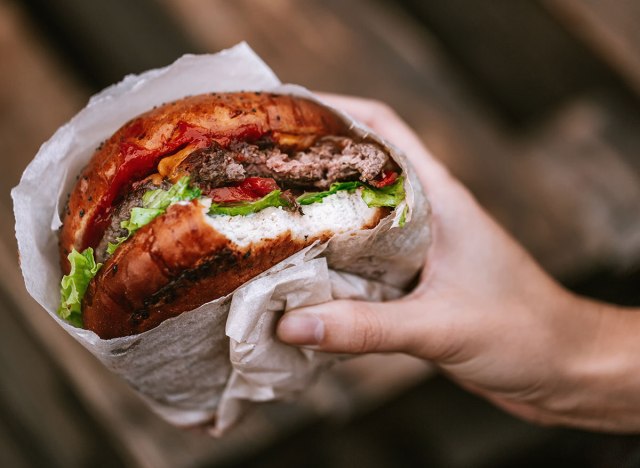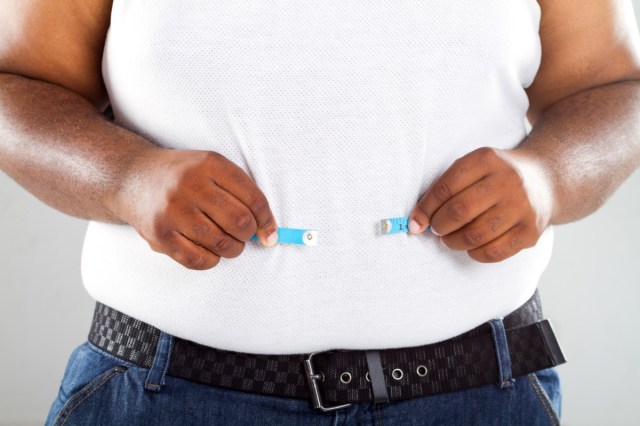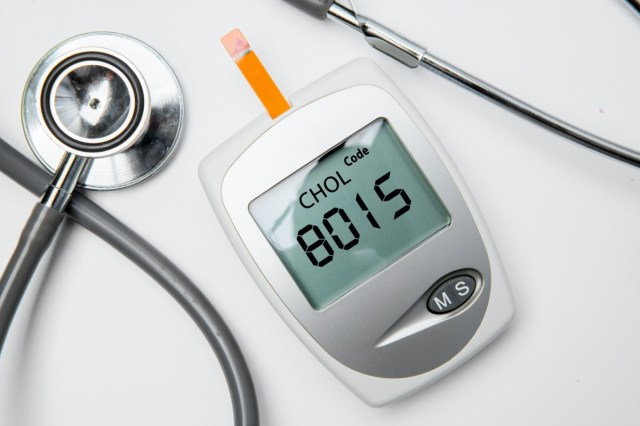Side Effects of Giving Up Oatmeal, According to Science
They say breakfast is the most important meal of the day, but not all breakfast foods are created equal when it comes to your health. According to a 2016 review of research published in the journal Nutrients based on data from the National Health and Nutrition Examination Surveys, approximately 6 percent of the U.S. population eats oatmeal on any given day, a choice that’s associated with numerous health benefits, from increased satiety to improved digestive health.
However, if you’re among the countless people ditching oatmeal as part of a low-carb, keto, or grain-free diet, you may be in for some surprising side effects. Read on to discover what happens to your body when you give up oatmeal, according to science. Read on, and for more on healthy eating, don’t miss 7 Healthiest Foods to Eat Right Now.
Your diet may become less healthy overall.
If you want to ensure that you’re sticking to a healthy diet, keeping oatmeal on the menu might just be the best way to do so. A 2015 study published in the journal Food & Nutrition Research found that oatmeal consumption was associated with an overall improvement in dietary quality among children. That may mean if you ditch it as your breakfast of choice, your food choices throughout the rest of the day may suffer. But if you keep this top of mind, there’s no reason to worry too much if you want to give up oatmeal. Just read up on these 8 Easy Tricks for Eating Healthy Every Day.
You may eat more.

Skip that bowl of oatmeal for breakfast and you may find yourself more peckish throughout the rest of the day. A 2016 study published in the Journal of the American College of Nutrition found that oatmeal consumption was associated with increased satiety, reduced appetite, and lower total caloric consumption compared to those who consumed an oat-based breakfast cereal, so if you ditch it from your diet, you might be reaching for a high-calorie snack before you know it.
For more healthy eating news delivered to your inbox, sign up for our newsletter.
Your waistline may expand.

Want to keep your waist trim and keep belly fat at bay? Don’t ditch the oatmeal just yet. A 2013 study published in Plant Foods for Human Nutrition found that oatmeal reduced abdominal fat and obesity in study subjects—but the same wasn’t true for the placebo group. And if you want to slim down, check out these 15 Underrated Weight Loss Tips That Actually Work.
Your cholesterol levels may rise.

Keeping your cholesterol levels healthy can help reduce your risk of a wide variety of adverse health outcomes, from heart attack to stroke. Fortunately for those who eat oatmeal frequently, a 2019 review of research published in Frontiers in Nutrition found that there is “significant clinical evidence” that the beta-glucan fiber in oats can help reduce cholesterol levels. However, if you cut oatmeal from your meal plan, you’ll be hard-pressed to find this benefit elsewhere. The only food with comparable amounts of beta-glucan to oatmeal is barley, and most of the other foods that contain it—including sorghum, Reishi mushrooms, durum wheat, and seaweed—aren’t as easy to come by, or as frequently consumed, by most people.
Your heart attack risk may increase.

If you’re thinking of replacing your usual bowl of oatmeal with something else at breakfast, you may want to think twice. A 2019 study published in the journal Stroke found that, among study subjects followed for a 13.4-year period, those who replaced white bread or eggs with oatmeal for breakfast had lower rates of all types of stroke.
Oatmeal may even have a protective effect if you already have heart disease; according to a 2019 study published in Scientific Reports, researchers found that individuals who had undergone a coronary procedure who ate oatmeal regularly afterward had lower levels of LDL, or “bad,” cholesterol, and had lower levels of inflammation than those who did not. And for more ways to protect your heart health, check out these 20 Foods That Can Help Lower Your Risk of Heart Disease.
The post Side Effects of Giving Up Oatmeal, According to Science appeared first on .





